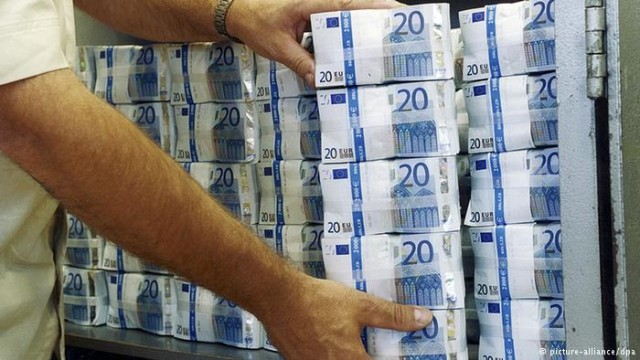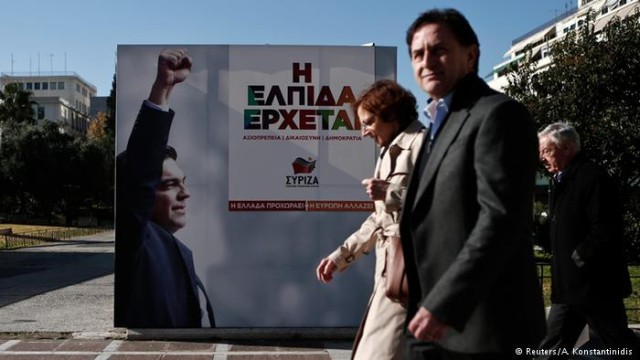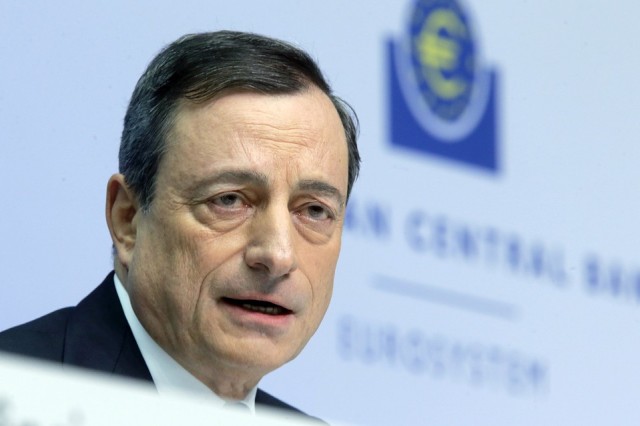Whenever somebody mentions the Eurozone nowadays, it always seems to conjure up the image of a frail old man on life support, about to flatline any second. Ironical, since the European Union (EU) had been envisioned as an impenetrable organization ala the Justice League of the 21st century. However, the fissures that have appeared over the past few years can be better likened to Joel Schumacher’s ‘Batman and Robin’.
As a last shot, the European Central Bank (the Central Bank for the Euro, manages monetary policy for the same) has decided to implement a massive stimulus package, which involves buying 60 billion euros worth assets per month for 19 months. To save you the mind-numbing calculations, a total of 1.140 trillion euros will be injected into the member countries’ economies by September 2016.
This monetary policy, also referred to as quantitative easing, has often been utilized in the USA to boost economic variables. The basic tenet involves increasing money supply, thus lowering interest rates and promoting spending and consumption (which also decreases savings). Lowering interest rates will also imply a depreciation in the value of the Euro. Much needed in a place where the unemployment rates have shot up to as much as 23% in Greece and economies remain virtually stagnant.
Before I go on further about the impact of this move on member states of the Union and the rest of the world, a brief history of the EU crisis is in order.
THE BIG FAT GREEK DEBT
The problem child of the European Union, Greece’s movements have been the most closely watched during this entire charade.
- The country’s debt-to-GDP ratio is currently the highest in Europe, a whopping 175% in 2014. Compare this to the euro’s debt-to-GDP ratio of 93%.
- After announcing total debts of 300 billion euros in December 2009, the highest in modern history, the country has been on the receiving end of two bailout packages in 2010 and 2011, which were provided on the condition of implementation of severe austerity measures . Portugal, Ireland, Italy and Spain have followed.
- The International Monetary Fund, European Commission and the European Central Bank, popularly dubbed as the ‘troika’, are the Godfather of the region, offering bailout packages and monetary policy measures that the EU simply cannot afford to refuse.
- Those affected by this strong-arming, mostly the Greeks, have not taken it quietly. Protests against severe budget cuts abound, and the vocally anti-austerity political party Syrzia has emerged victorious in the Greek elections. Since the first item on their manifesto is to re-negotiate the terms of the bailout package, clearly the EU is in for some serious debates.
TRILLION EURO BABY
Mario Draghi, the chief of the European Central Bank has an unenviable job; reinvigorating the economy of 19 countries. The primary concerns (besides the staggering debt) have been the extremely low inflation rate and high unemployment. Seen from a purely theoretical perspective, Draghi’s decision makes perfect sense, if spending increases, incentive to produce output increases, the economy expands and everyone goes home happy. Matters are never that simple however.
Though some factions are pleased (Wall Street, looking at you), most countries have been thrown into a tizzy. In particular, German Chancellor Angela Merkel has stressed the continued importance of structural reforms in debt-afflicted countries. She’s not wrong.
Monetizing debt (printing money to pay off existing debt) may sound like a good idea in the short run, nothing really trumps the need for a stable economic model, with reigning in government expenditures and revenue (also referred to as fiscal consolidation) being top priority. If EU members start taking this decision as an indication of the fact that they can relax, then the Bank will essentially be letting big government debts go ‘off the hook’.
LOOKING INTO THE FUTURE
Draghi has justified his move by citing the catch to his bond-buying extravaganza.
- Firstly, countries with bailout packages in place would have to have the required measures in place.
- Secondly, debt purchases would occur only in secondary markets wherein bonds have received an investment grade rating (i.e., good quality bonds with low risk of default).
- Thirdly, no special treatments for any country.
Happy ? Not really. The President of Germany’s Central Bank, Jens Weidmann has this to say ,“ With the new program, the ECB will become the largest creditor of the euro-states. This entails the risk that (countries with) solid national budgets will be neglected.” Basically, Germany doesn’t want the ECB to be doing the dirty work that is the responsibility of the governments of the respective nations. The French President, Francois Hollande seems happy, believing that it’ll ‘create a movement favourable to growth’.
What next you ask? Really can’t say. I’m sure you’ve all heard that saying about economists predicting a disaster after it happens. I can however suggest to all travelling enthusiasts reading this post, if you want to hitchhike across Europe, now is not a bad time to go.
-By Gauri Gaur





































